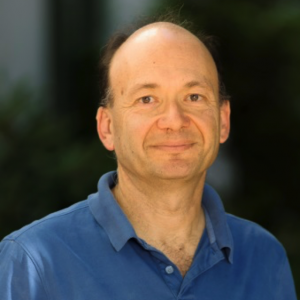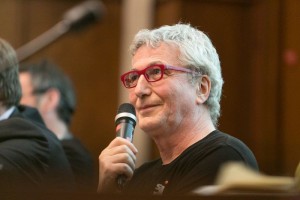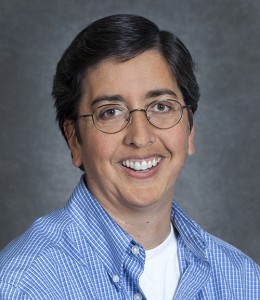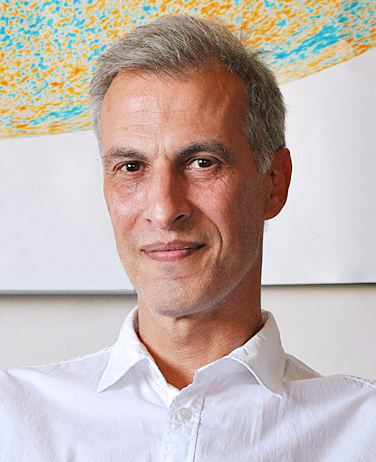|
Amr EL ABBADI Towards Fault-Tolerant, Consistent and Private Big Data Management in the Cloud Data is everywhere and is being generated, stored, managed and analyzed at unprecedented rates. In fact, big data applications have become indispensable in as diverse fields as environmental engineering, commerce, astrophysics, neuroscience, social science and geography. Large scale, globally dispersed data centers, also known as the Cloud, are the common eco-system for storing such big data sets. Managing and manipulating large data sets in such settings raise significant fault-tolerant, consistency and privacy concerns that have resulted in pragmatic sacrifices in functionality or efficiency. In this talk, we will explore various approaches to mitigate these shortcomings to ensure consistent data management both within a single data center as well as across multiple data centers. Consistently managing data across multiple data centers is crucial to ensure fault-tolerance in the face of catastrophic disasters. In addition to failures, data centers are constantly exposed to an increasing number of non-trivial adversarial threats. Traditional cryptographic methods either limit the functionality of the data, or significantly increase retrieval costs. We will explore novel approaches that ensure efficient privacy preserving access to data in the Cloud. |
Biography Amr El Abbadi is a Professor of Computer Science at the University of California, Santa Barbara. He received his B. Eng. from Alexandria University, Egypt, and his Ph.D. from Cornell University. Prof. El Abbadi is an ACM Fellow, AAAS Fellow, and IEEE Fellow. He was Chair of the Computer Science Department at UCSB from 2007 to 2011. He has served as a journal editor for several database journals, including, currently, The VLDB Journal, IEEE Transactions on Computers and The Computer Journal. He has been Program Chair for multiple database and distributed systems conferences, most recently SIGSPATIAL GIS 2010, ACM Symposium on Cloud Computing (SoCC) 2011, COMAD (India) 2012 and the first ACM Conference on Social Networks (COSN)2013. He currently serves on the executive committee of the IEEE Technical Committee on Data Engineering (TCDE) and was a board member of the VLDB Endowment from 2002 to 2008. In 2007, Prof. El Abbadi received the UCSB Senate Outstanding Mentorship Award for his excellence in mentoring graduate students. In 2013, his student, Sudipto Das received the SIGMOD Jim Gray Doctoral Dissertation Award. Most recently Prof. El Abbadi was the co-recipient of the Test of Time Award at EDBT/ICDT 2015. He has published over 300 articles in databases and distributed systems and has supervised over 30 PhD students. |
|
Serge ABITEBOUL Toward personal knowledge bases A Web user today has his/her data and information distributed in a number of services that operate in silos. Computer wizards already know how to control their personal data to some extent. It is now becoming possible for everyone to do the same, and there are many advantages to doing so. Everyone should now be in a position to manage his/her personal information. Furthermore, we will argue that we should move towards personal knowledge bases and discuss advantages to do so. We will mention recent works around a datalog dialect, namely Webdamlog. ————————— Broadcast on FFRANCE INTER / ‘La tête au carré’ – March 3rd 2016, 14:00 : Les coulisses d’internet |
Biography
Serge Abiteboul obtained his Ph.D. from the University of Southern California, and a State Doctoral Thesis from the University of Paris-Sud. He has been a researcher at the Institut National de Recherche en Informatique et Automatique since 1982 and is now Distinguished Affiliated Professor at Ecole Normale Supérieure de Cachan. He was a Lecturer at the École Polytechnique and Visiting Professor at Stanford and Oxford University. He has been Chair Professor at Collège de France in 2011-12 and Francqui Chair Professor at Namur University in 2012-2013. He co-founded the company Xyleme in 2000. Serge Abiteboul has received the ACM SIGMOD Innovation Award in 1998, the EADS Award from the French Academy of sciences in 2007; the Milner Award from the Royal Society in 2013; and a European Research Council Fellowship (2008-2013). He became a member of the French Academy of Sciences in 2008, and a member the Academy of Europe in 2011. He is a member of the Conseil national du numérique and Chairman of the Scientific board of the Société d’Informatique de France. His research work focuses mainly on data, information and knowledge management, particularly on the Web. He founded and is an editor of the blog binaire.blogs.lemonde.fr |
|
Deborah AGARWAL Emerging challenges in data science to support science Data science research has made impressive gains in areas like machine learning, data management, data analysis frameworks, and algorithms as well as in support for large-scale datasets. However, many important data science research challenges have received little or no attention. This talk will focus on a next, emerging set of data science challenges that need to be addressed to support science. Some examples of challenges include, dynamic integration of disparate data sources, data curation, data processing error handling, and management of dynamic data. Usability of data tools and algorithms is another critical area. These challenges will be presented using examples of real science projects underway today that are facing these challenges. |
Biography
Deb Agarwal is the Data Science and Technology Department Head, Inria International Chair (France), and a Berkeley Institute for Data Science Senior Fellow. Dr. Agarwal’s research focuses on scientific tools which enable sharing of scientific experiments, advanced networking infrastructure to support sharing of scientific data, data analysis support infrastructure for eco-science. Dr. Agarwal received her Ph.D. in electrical and computer engineering from University of California, Santa Barbara and a B.S. in Mechanical Engineering from Purdue University. |
|
Jean-François CARDOSO The Planck data processing pipeline: how to image our Universe in its infancy (and why) The Planck collaboration from the European Spatial Agency recently released a full-sky high-resolution map of the Cosmic Microwave Background (CMB) which made the headlines of newspapers worldwide. The talk will start with an introduction to Big Bang theory. Jean-François CARDOSO will then describe the Planck satellite and discuss its data processing pipeline, going from noisy scans of the sky observed in 9 frequency channels to the construction of the CMB map and to the inference of the standard cosmological model, so beautifully confirmed by Planck results.
|
Biography (in french)
Diplomé de l’Ecole normale supérieure de Saint-Cloud en physique (1981), il soutient une thèse de doctorat sur la diffraction impulsionnelle sous la direction de Mathias Fink (1984). Recruté par le CNRS au LTCI, il y développe sur plus d’une dizaine d’années le thème de l’analyse en composantes indépendantes (ACI) et de la séparation de sources : comment décomposer plusieurs observations en sources élémentaires (composantes) sans utiliser aucune information physique a priori mais seulement l’hypothèse d’indépendance statistique entre ces composantes. Ses développements théoriques et algorithmiques contribuent à faire de cette approche novatrice un domaine de recherche à part entière dans le domaine du traitement du signal. Ils sont récompensés en 2003 par le prix Monpetit (prix thématique/sciences mécaniques et informatiques) de l’Académie des sciences. A partir de 2002, Jean-François Cardoso se consacre avec une implication croissante au traitement des données de la mission spatiale européenne Planck dont le but est d’imager le rayonnement fossile cosmologique pour obtenir un “instantané” de notre univers dans son enfance. Le satellite Planck forme des cartes plein-ciel du rayonnement micro-ondes observé à neuf longueurs d’onde différentes. Ces cartes contiennent un mélange du rayonnement fossile et de nombreuses autres émissions galactiques et extra-galactiques. C’est un problème de séparation de composantes dont Jean-François Cardoso a montré qu’il était résolu au mieux par une méthode ACI, dûment adaptée pour la mission Planck. Le résultat est une carte plein-ciel de l’Univers âgé de 380.000 ans qui a fait la Une des quotidiens du monde entier lors de la publication des résultats de Planck en mars 2013. J-F. Cardoso lauréat 2013 du prix thématique Paul Doistau-Emile Blutet* en sciences de l’Univers, remis par l’Académie des sciences. *Le prix Paul Doistau-Emile Blutet, créé en 1954, est un prix thématique biennal pour les sciences de l’Univers décerné par l’Académie des sciences. Il couronne des recherches dans le domaine de l’astrophysique ou de la physique du Globe. |




